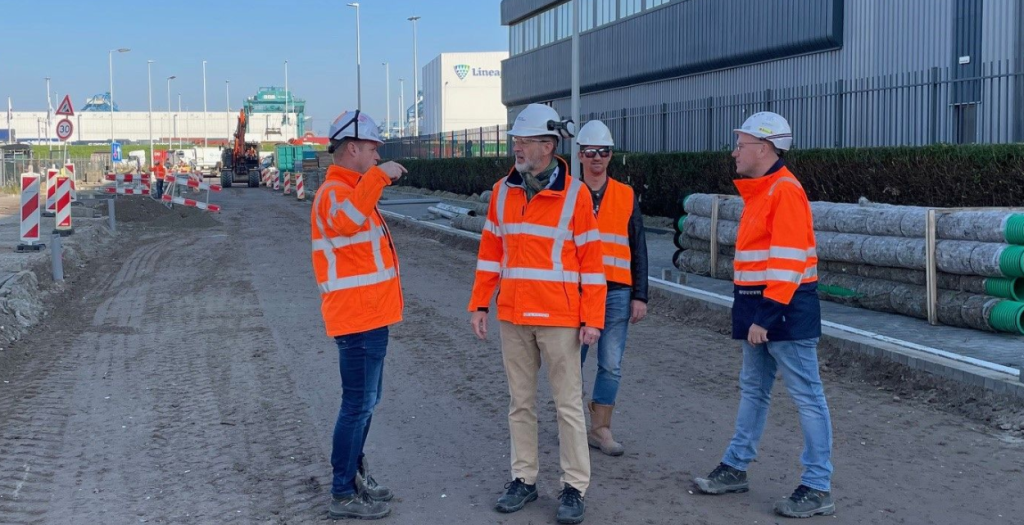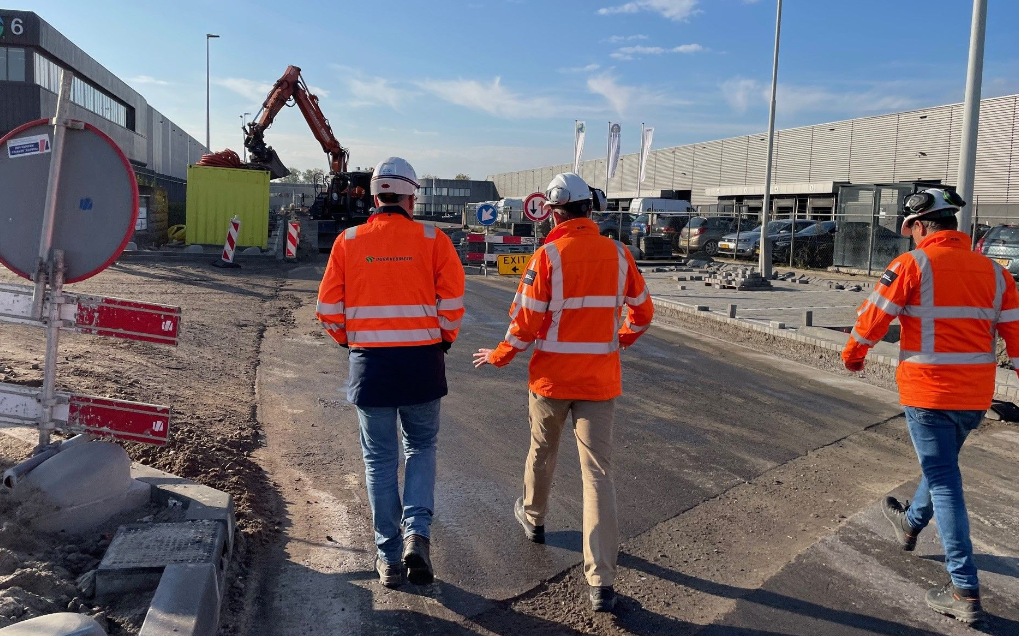
Boudewijn Siemons, CEO of the Port of Rotterdam Authority, recently visited Distripark Eemhaven, one of the port’s most bustling zones, where a significant infrastructure overhaul is underway. Built over 35 years ago, Distripark Eemhaven has long served as a hub for logistics and cargo services, but time has left its mark on the area. The Port of Rotterdam Authority has taken action to modernize the park, which has seen its roads and sewers sink due to the area’s high settlement sensitivity. Siemons’ visit signals the importance of this upgrade, which promises to enhance both functionality and sustainability in one of Europe’s busiest freight corridors.

Currently, the primary focus is on replacing the outdated sewer system, which has struggled under decades of use and subsidence. The comprehensive upgrade goes beyond just replacing pipes—it’s about creating a robust water management system and adapting the public infrastructure to meet today’s standards. In addition to the sewer overhaul, more than four kilometers of roads are being reconstructed to better withstand the natural settling of the ground. This is no minor task, and construction crews have been hard at work since the project broke ground in July 2023. The projected completion date is early 2025, meaning that Eemhaven’s logistics operations will need to work around ongoing construction for at least another year.

Despite the scale of this project, the Port Authority has emphasized minimizing disruptions to nearby logistics companies, many of which operate around the clock. The port’s 24/7 logistics environment is crucial to maintaining the flow of goods through Rotterdam, and any extended delays could have ripple effects across supply chains throughout Europe. Recognizing this, the Port Authority has implemented measures to secure accessibility during construction, working to avoid unnecessary interruptions to companies that rely on continuous access to the port.
For Siemons, ensuring the functionality and resilience of Rotterdam’s logistics infrastructure is not just about managing today’s demands—it’s a forward-looking strategy aimed at preparing the port for the future. Rotterdam’s position as a major global logistics and breakbulk hub means it must stay competitive and adaptable, especially as demands for sustainable and resilient infrastructure grow. With this restructuring project, the Port of Rotterdam Authority is not only investing in infrastructure but also in its long-term vision for global logistics.

